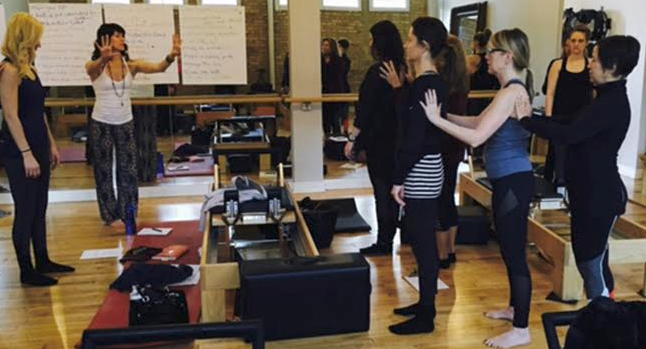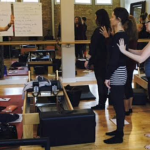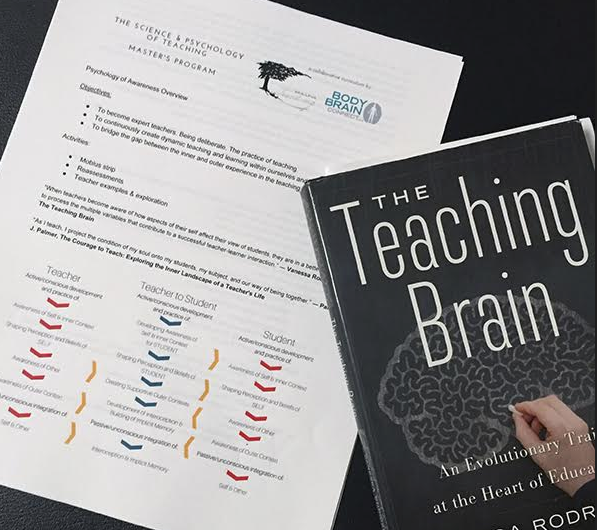Issue #324 – Wednesday, February 3, 2021
Whose Business is Bad Teaching?
Part I
by Chantill Lopez
Teaching is human. To teach is instinctual, even if in the smallest, most unrecognizable form. I teach my daughter how to fold her clothes, put away the dishes, scoop the poop from the cat box. I teach my son how to talk to his dad so that both can hear and listen (try). I teach my cat to use the cat door. I teach because I’m human and there’s no way around it. As a base instinct, teaching is self-preservation. But it’s more than that.
Teaching is connection and trust, to see and be seen, to share, to want another to thrive and grow. Teaching is relationship: relationship to self, other, and environment. Isn’t that what it means to be human?
But…and…as we know, not everyone is good at that: connecting; listening; standing aside so the other (student) might find their way. Not everyone has the AWARENESS to know these things ARE what teaching IS, what makes it rich and meaningful, joyful, and leads to payoffs and progress that are not solely based in body mechanics and good alignment, which are fragile without the underpinnings of EXPERT TEACHING.
So whose business is bad teaching?
Yours. Period.
AND it’s our industry educators and leaders (mine and maybe yours) who have chosen to take on the role of shaping the priorities of our teachers. It’s their business. Or rather it should be.

Before you read the remainder of this article, I think it’s important that I’m clear about something: I love our Pilates community. I adore the passion and brilliance and dedication you all have to your work, to your craft, to literally creating a better world for all of us to live in. The Pilates community, and the movement community at large, has been my life for, well, my whole life really; it has taught me to be wise, compassionate, driven, and dedicated. It has given me so many, many powerful tools for not only being a good teacher, but a strong businesswoman and the best kind of human I can be. I honor you and I honor it. And nothing is perfect, so we strive to understand and learn so we can grow. That’s what this article is really in support of.
It has been my experience over the last two decades that we are fixated and consumed with the passing down and acquisition of the Method. Unfortunately, in the shadow of this exalted aim, we are not taught to teach…explicitly. It is assumed and overlooked for the sake of the technical craft. Enter the infighting, ridicule, lawsuits, divisiveness, constant wrestling with who’s got it right, who’s got THE right, and as we’ve seen most recently, downright emotional violence being done, which is unacceptable!
To be crystal clear: This is not a criticism or an exclusive judgment. The reality is that our efforts to preserve the work as the only thing that matters has skewed our priorities. This is the nature and product of dismantling and then disseminating complex information, i.e. the Pilates Method, so that we can pass it down. Of course, it’s important that we know WHAT we teach and that we understand the body deeply and intimately, but the preoccupation with technical skill nonetheless overshadows the fact that technical skill is a glass house if you CAN’T TEACH.
Here’s where the journey and the trouble begins:
When you desire to teach a thing that is complex, you first have to break it down. You analyze, organize, dissect, construct, piece out, and build ideas so they can be easily understood, digested and then shared. As Pilates teachers, we are first and foremost dedicated, and required, to understand the thing we teach. If we learn to teach along the way, it’s because we are either naturally attuned to the act of connecting or we are lucky enough to have a teacher/mentor we emulate and who is — we hope — worth emulating. That’s not always the case.
But the art, science, and craft of teaching are not taught. Period. Because that’s not our business.
Or is it?
If bad teaching IS your business, then you are obligated to discover and learn what it means to be an expert teacher, not just an expert technician. Expert teaching starts with deep awareness and understanding what teaching IS, independent of the thing we teach. It’s an understanding that great teaching elevates the results we get so they are no longer fragile and fleeting, but instead are robust and rooted in the teaching itself rather than just the exercise.
Success in teaching and learning movement, whether in-person or online, is not only reliant on body awareness, or what Howard Gardner, author of “Multiple Intelligences”, describes as Bodily-Kinesthetic Intelligence, but on our awareness of ourselves, our environments (contexts), and of others (our students). In Gardner’s terms, this is the necessity of both Intrapersonal (within ourselves) and Interpersonal (between ourselves and others) Intelligence.
In her book “The Teaching Brain”, Vanessa Rodriguez explores these ideas via the five different types of awareness a teacher must possess to be an “expert teacher”:
- Awareness of Learner (other)
- Awareness of Teaching Self (self)
- Awareness of Interaction (the convergence of self and other — teaching and learning as a dynamic two-way exchange)
- Awareness of Context (the environments in which convergence happens)
- Awareness of Teaching Practice (the approach, strategies, and tactics you apply to teaching).
In the subsequent parts of this article, we will explore an active/conscious approach to cultivating awareness on three levels – awareness of self, awareness of other, and awareness of context.
The goal is to understand HOW these types of awareness impact teaching and learning so GOOD TEACHING becomes as much of a priority as good technique.
Look for Part 2 (Awareness of Self) soon!

Chantill Lopez – My passion is teaching and learning from the whole-person and whole-body perspective. My work draws from brain-based learning frameworks, motivation and communication science, somatic and humanistic psychology, and other models such as the Polyvagal Theory, that support movement teachers in truly excelling not just as technicians but as skillful and passionate teachers!
I’m a huge advocate of teachers making what they’re worth, learning how to step into their genius while leveraging business models that support time, location, and financial freedom. You can see my work at it’s best as the co-creator and facilitator of Pilates Master’s Program, a 90-day intensive that teaches you how to build dynamic, scalable, and flexible hybrid — or fully online offerings — AND develops you as an EXPERT teacher (I mean if you like to geek out on brain science and the nervous system ).
If you want to learn more about my work and you’re interested in having rich and provocative conversations about teaching and how to not only weather the storm but flourish when things get tough, join me here.


